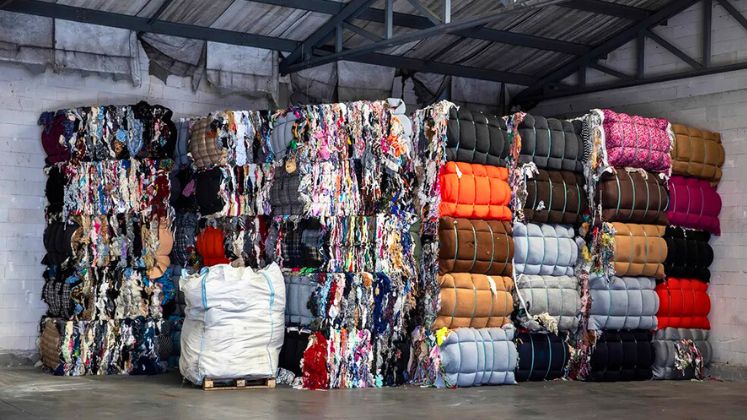
UK textile collectors and sorters already spend US $ 118 million a year to deal with unwanted clothing, according to the Waste & Resources Action Programme’s (WRAP) stern warning. The environmental action non-profit cautioned in a recent research that many of these vendors may have to close, forcing the cost of handling the textiles to fall on customers, charity stores and local government agencies.
In the event of the sector’s failure, gate fees for the disposal of discarded textiles might cost local authorities an additional US $ 86 million annually. Local governments in the UK currently spend US $ 97 million annually on textile management.
However, local authorities would also have to decide whether to pay more for collections, which would probably result in a rise in council tax, or send more trash to landfills and incinerators if UK textile collectors and sorters were to go. At the moment, retailers help send old apparel to second-hand marketplaces abroad.
This procedure has historically been used to recover the cost of handling old textiles, but since there are fewer attractive reusable items, costs are rarely met and the majority of enterprises are currently losing money.
If more used clothing is disposed of in landfills and burned, the industry may also face an immediate environmental impact of about 2.5 million tonnes CO2e annually. Without financing, authorities would have to spend up to US $ 268.56 million annually by 2035, according to WRAP.
WRAP aims to build a nationwide network of automatic sorting plants with its 18 partners.
The cost of collecting and sorting used clothing is predicted to be cut in half by 2035 if a network of fourteen advanced sorting and pre-processing facilities with a 25,000 tonne capacity annually is established in the UK.
A number of additional strategies to shift the UK textile sector towards a more circular economy were also addressed in the report.
First, producers would bear the burden of handling textile waste under eco-modulated Extended Producer Responsibility (EPR). The eco-modulation would encourage the creation of circular and sustainable fashion designs. In order to optimise the influence of its UK Textiles Pact retailer and brand signatories, WRAP has also suggested a new cooperative strategy for store takeback.
In order to collaborate with top brands to co-design simpler, more efficient textile takeback programs that benefit both the industry and consumers, the NGO established the Textile Collections System Transition Programme.






